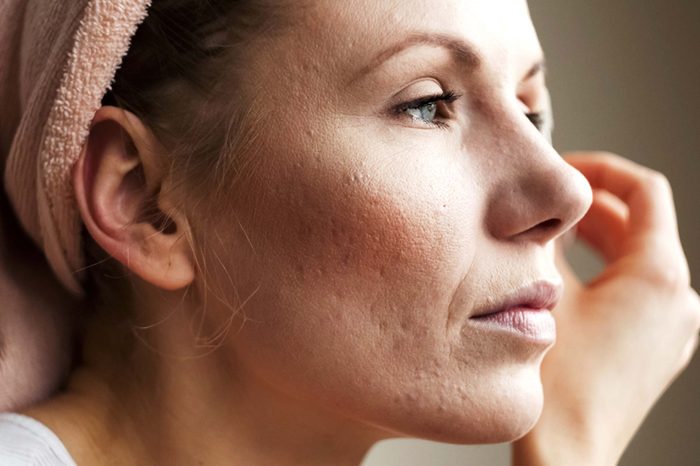Acne isn’t just a problem for teens
An estimated 80 percent of all people between the ages of 11 and 30 experience acne outbreaks, but it’s not uncommon for pimples to pop up on the faces of those in their 40s or even 50s. And while there are plenty of effective treatments, some people prefer to find a natural solution, such as essential oils. Egyptians used them as early as 4500 BC; scholars in India created the science of Ayurveda using essential oils around 3000 BC; and Chinese scholars used essential oils as remedies for ailments between 2067 and 2597 BC.
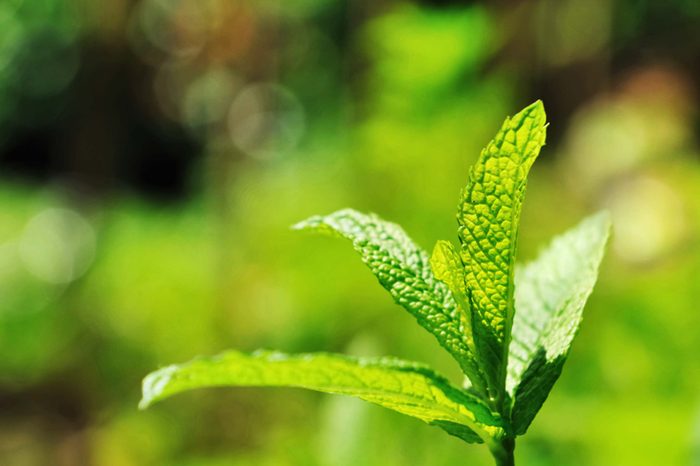
How essential oils work
Because essentials oils are extracted directly from the bark, flower, fruit, leaf, seed, or root of a plant or tree, and then distilled, they are highly concentrated. Just a few drops can have incredible benefits. The benefits of essential oils come from their antioxidant, antimicrobial, and anti-inflammatory properties. Studies have shown essential oils to help prevent bacterial infections, improve sleep quality and reduce anxiety, and fight acne-causing bacteria. There are three primary ways to use essential oils: applied to the skin, inhaled, or ingested. If you’re applying them directly to the skin, test a small drop on the inside of your wrist first to see if you have a reaction to it, recommends Hope Gillerman, founder of H. Gillerman Organics and author of Essential Oils Every Day. Whether you’ve run out of options for treating your skin or are just looking for a more holistic route, there are several essential oils that can help treat acne.
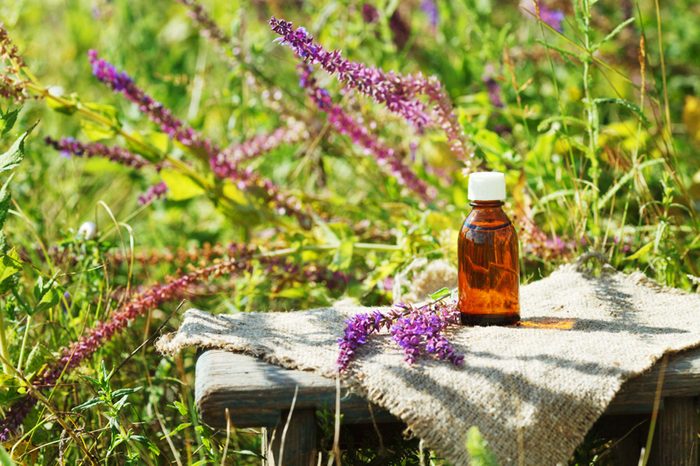
Clary sage
Clary sage essential oil, a close relative of common garden sage, is one of the top three oils for fighting acne, says New York City integrative dermatologist Cybele Fishman, MD. “Clary sage oil also acts against bad bacteria Staphylococcus aureus,” Dr. Fishman notes. There is increasing evidence that this species is a major culprit in causing skin infections. A 2015 study tested the potency of clary sage on multiple drug-resistant bacterial strains, and found that it was active against bacteria that cause skin infections, which can aggravate or mimic acne breakouts. To use clary sage essential oil for acne, apply 1 to 3 drops of it to the affected areas using a clean cotton ball. “I like to put a few drops in a carrier oil to dilute it,” Dr. Fishman. “I like jojoba as a carrier oil because it is not comedogenic [meaning it won’t clog your pores].”
Tea tree Oil
The incredibly useful tea tree oil is considered one of the most effective essential oils for acne. “Besides its well-known antimicrobial properties, tea tree oil displays anti-inflammatory activities,” says Jeanette Jacknin, MD, a board-certified holistic dermatologist in San Diego. “One drop of pure tea tree oil can be applied directly to each acne lesion twice a day,” says Dr. Jacknin. “Results should be comparable to those achieved with benzoyl peroxide.”
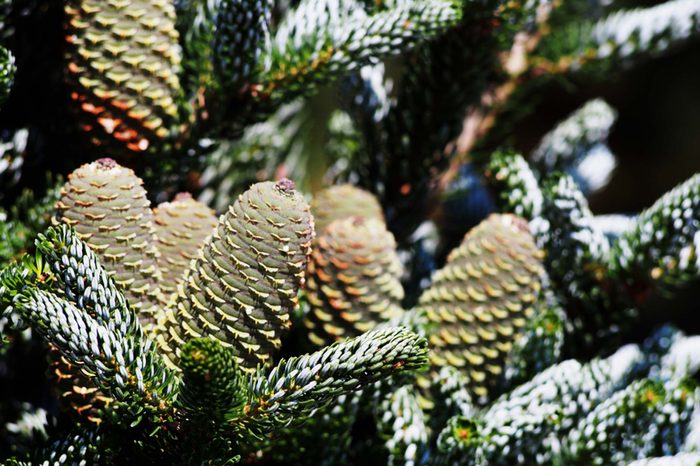
Korean fir
This essential oil may not ring a bell, but if you’re having acne problems, you’ll want to get to know it. “Korean fir has [antibacterial] activity against P. acnes—which is linked to the skin condition of acne—and reduces many inflammatory markers that are implicated in acne,” says Dr. Fishman. She suggests putting a few drops in a carrier oil and applying it directly to the skin. A cotton swab will ensure the oil is concentrated on the intended spot without wasting it or spreading it onto unwanted areas.
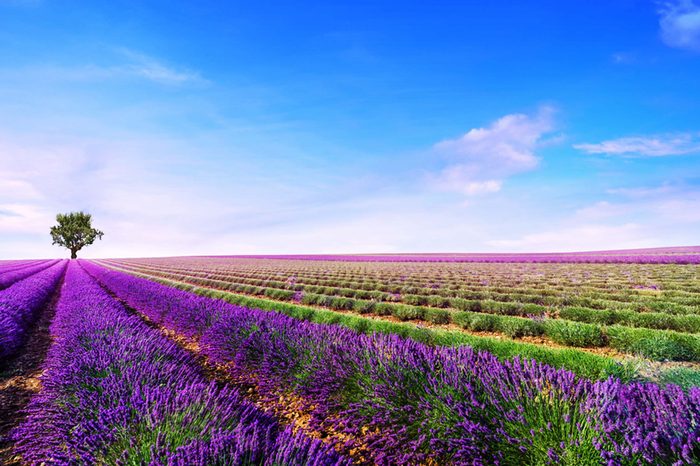
Lavender
Perhaps one of the most common essential oils, lavender oil is known for its ability to eliminate nervous tension, relax muscles, improve mood and enhance sleep, says Dr. Fishman. It’s also well-known for helping treat acne breakouts thanks to its antibacterial properties. Because some acne is associated with stress, reducing tension can also calm down breakouts. Lavender essential oil can be applied via a cotton swab, focusing on the problem areas. Make sure to dilute it with a carrier oil first, as there’s some evidence that using lavender essential oil directly on the skin may be harmful.
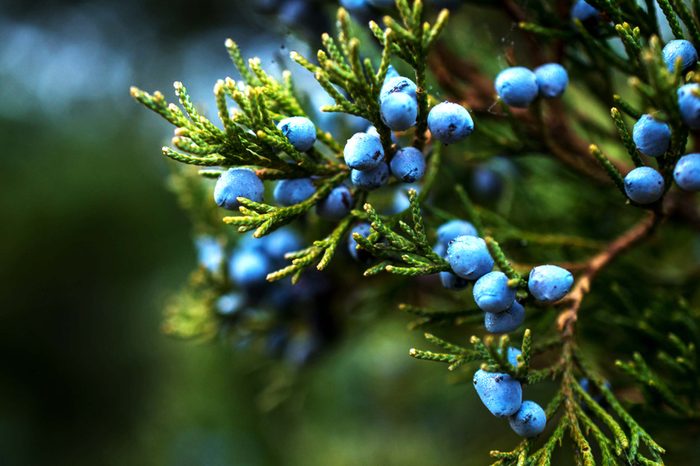
Juniper berry
Juniper essential oil is known for its antiseptic properties, explains Dr. Jacknin. It is a natural skin toner and can also help reduce acne breakouts. To use juniper berry essential oil for acne, dilute 2–3 drops in a carrier oil and apply topically to the area of concern.
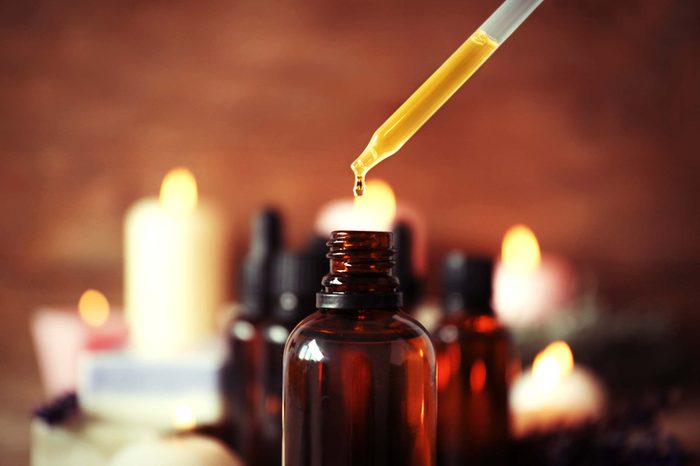
Essential oil recipes for acne
Along with diluting the essential oils in a carrier oil like jojoba essential oil, you can also create your own treatments, according to Gillerman.
For a face wash:
Mix together the following ingredients in a bottle and store in a cool place:
- 1 tablespoon coconut oil
- 3 tablespoons honey
- 1 tablespoon apple cider vinegar
- 20 drops tea tree oil
- 2 capsules of live probiotics
For an acne scar treatment:
Create this paste by mixing the following ingredients. Apply to a dry face after washing, let rest for an hour, then rinse off:
- 2 teaspoons raw honey
- 3 drops lavender oil
- 3 drops tea tree oil
- 3 drops frankincense oil
For a face serum to replenish natural oils:
Add the following ingredients to a 2-ounce or larger bottle, swirling around for 30 seconds to blend. Use on a dry face after washing, applying and then massaging a drop of serum to forehead, cheeks, and chin:
- 2 ounces jojoba oil
- 5 drops tea tree oil
- 5 drops lemongrass oil
- 10 drops lavender oil

